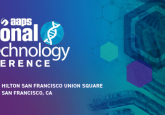Ask the Experts: Naidong Weng

Naidong Weng is a Scientific Director, Janssen Fellow and Head of East Coast Bioanalysis and Pharmacokinetics within DMPK of Janssen Research and Development (NJ, US). He currently supervises a department which has end to end responsibilities for bioanalytical and preclinical toxicokinetic activities (discovery and development) of the US programs, including outsourced in-life pharmacokinetic packages in China. He has been with Johnson & Johnson for over 11 years, having previously worked at Bristol-Myers Squibb (NJ, US) and Wyeth (PA, US). He also worked at major CROs, MDS (PA, US) and Covance (NJ, US) for 10 years.
In what areas is the outsourced work you send?
We strategically form partnerships with a few preferred providers (CROs) to support both discovery and development work.
Internally we focus on providing high value and quick turn-around on the discovery supports at lead optimization and late lead optimization. This includes both small molecules and peptide/protein half-life extension platforms, where mass spectrometry plays a major role for both quantitation and catabolites identification – this is pivotal knowledge for optimizing the back-up compounds.
We partner with other groups to outsource entire early discovery program packages (chemistry, biology, in vitro and in vivo) with preferred CROs. We are responsible for the in vivo package including formulation, dosing, bioanalysis and pharmacokinetics.
For programs post new molecular entity, we outsource the entire good laboratory practice bioanalysis work as well as bioanalytical assay development and validation to few preferred providers. The same can be said for the clinical studies. We function as study monitor to ensure on-time quality data delivery within budget.
What does your organization believe is important when outsourcing?
A lot of bioanalytical study monitors (and some CROs) will say they will want to get the highest quality data with lowest cost and fastest delivery. That sounds good, but it falls into the triple constraints that the project management (PM) textbook says is not always possible.
Personally, I am not big fan of the doctrines for rigid PM but I tend to agree with them on this point. When we outsource work we have to understand the risks and know how to mitigate them. The three constraints are always in constant dynamic shifting, depending on the nature of the compound and stage of the program.
Do we need to have the same quality standard and documentation details for an early discovery program versus a program already in GLP or clinical stages? Probably not, but one still needs to ascertain what constitutes the acceptable standard at each stage. Do we always need the fastest delivery? That may come with higher costs and decreased quality. If planned appropriately, one should always try to balance the three elements to the maximal benefit of the program.
With acceptable quality, cost and delivery, we consider long-term relationships and transparency as important elements when working with CROs. Things may not always work out as planned and those who are willing to share bad news with total transparency always go a long way.
What are the challenges you face when sending outsourced work?
Due to the increased amount of outsourced work in the last several years, CROs are quite busy these days!
One of the biggest challenges is to get work scheduled at the CRO, but having a few preferred providers (with a bigger footprint at the CRO) seems to be a helpful attribute.
Another challenge may also be educating the CRO in adjusting their rigid processes to what we need at pharma companies. For a lot of non-GLP work, we really don’t need to go through the same rigor as GLP studies in terms of workorder, PO generation, documentation, validation etc. CROs can be hesitant to apply any non-standard procedure at their labs and they tend to follow their SOPs strictly. It is harder at CROs to implement new practices such as tiered approaches or scientific validation. This rigid practice can sometimes cause delay or increase the cost unnecessarily.
The other challenge is when trying to outsource some of the newest bioanalytical platforms to CROs, such as intact protein bioanalysis by LC–HRMS. There is still lack of expertise in this area.
Do you think the amount of outsourcing will change in the future?
Currently pharma outsource a lot to CROs. Using my own department as an example: 10 years ago, we used to support most of the GLP and clinical bioanalytical work internally. Now with only one third of the original staff, we have doubled the responsibility from development work to supporting both discovery and development portfolios. It is always important to maintain sufficient internal expertise within the office and laboratory, as when there is insufficient internal expertise and thus insufficient study monitoring, one can start to see the quality suffers slippery and cost jumps higher.
We will continue see increased outsourcing activities, especially for small molecules, to a certain threshold. We will see a rapid increase of outsourcing LC–MS bioanalysis for large molecules for either intact or signature peptide approaches. CROs with unique capabilities in this area will have the inside track.
What factors do you think will increase outsourcing?
Internal resources at pharmas are already significantly reduced, especially for development support. The question is no longer which type of studies we need to outsource – the single most important factor which can influence the outsourced work is the discovery/development portfolios.
The programs in various pipelines will enable more outsourced work. On the other hand, pharmas are more willing to terminate programs at earlier stages. In other words, CROs may see increased work on preclinical development and fewer late phase clinical studies.
We all know preclinical work takes more method development and validation work and fewer real samples. Those who are sufficiently staffed with method development scientists may have the edge in attracting more business.
Do you think the relationship between pharma and outsourcing companies will change in the future?
Currently for LC–MS bioanalysis, the relationship between pharma and CROs is quite mature. The frequent exchange of staff between pharma and CROs makes the partnership between CROs and pharma possible.
CROs will continue to deliver the quality data pharma cannot currently achieve internally. We will see continuous growth of preferred provider types of CROs, e.g., fewer CROs will be used by a particular pharma, even though other outsourcing models such as FTE agreement and pay per service models are still the most commonly used and probably most convenient approaches.






